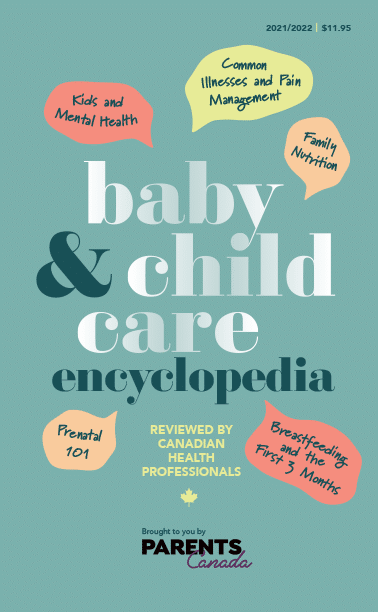Baby
5 min Read
The First 24 Hours

October 29, 2021
Baby
5 min Read

October 29, 2021

From the pages of the Baby & Child Care Encyclopedia: Chapter 2, Breastfeeding and the First Three Months
You’ve experienced pregnancy and made it through labour and delivery (phew!). And now you’re finally here: Welcome to parenthood. We know you’ll be excited and emotional while you learn what it means to be a mother or father. This is an adventure like no other, and it starts now.
If you’ve just delivered in a hospital, your room will be bustling with doctors and nurses, who will examine your newborn and get you prepped on what happens next. Procedures vary by hospital, but this will give you an idea of how your first minutes, hours and days will unfold.
We’ll also give you the lowdown on everything you need to know about infants, and answer some common how-to questions.
Right after delivery, those doctors, midwives and nurses on the scene will suction Baby’s nose and mouth and your newborn will breathe on his or her own. (Yes, you’ll hear those first cries.) Your partner will be asked if he or she would like to cut the umbilical cord, and your baby’s Apgar score will be calculated. Baby is then measured and weighed, wiped clean. As long as she’s maintaining a good body temperature, you can ask to hold him or her skin-to-skin and get some bonding time in.
THE APGAR TEST (which stands for appearance, pulse, grimace, activity and respiration) is based on breathing, heart rate, colour, muscle tone and reflex response one minute after birth and again at five minutes. If your newborn has a low score (the range is one to 10; the higher the score, the better), the test will be repeated every five minutes until the numbers come up. (Don’t let a low result scare you. It’s typical for scores to rise to normal levels pretty quickly.)
New moms around the world are used to keeping their wee ones with them post-birth, so don’t be surprised to learn that you’ll have your baby in your room with you, regardless of if you give birth at home or in the hospital. Besides being able to fawn over your new addition, bunking with your little one lets you get used to his or her cues. Your baby will continue to be monitored (pulse and abdomen checks, etc.) and things like head and chest circumference will be measured. You’re likely to encounter Baby’s first dirty diaper (that dark, tarry poop is called meconium), and you can pick up tips from your nurse or midwife on handling the umbilical cord stump and how to properly hold, burp, bathe and swaddle your baby. If you have a boy and have chosen to have him circumcised, the nurse can also teach you how to care for the area. When you notice the baby’s hunger cues (hands to mouth, turning their heads to look for food), you can ask for a bottle of formula or get help learning to breastfeed, if you choose to. If you opt for the latter, many hospitals have lactation consultants who can tell you everything you need to know about nursing, including what to expect, different ways to hold Baby, how to determine whether they’re getting enough, etc. (You’ll read more about breastfeeding later.)
If you’ve delivered vaginally in the hospital, you’ll likely be out of the hospital between 24 and 48 hours; if you’ve had a C-section, you’re looking at a two- to four-day stay. Either way, your baby will need to undergo a few tests prior to going home, including a check for jaundice (if babies have yellowish skin they’ll be placed in an isolette—also known as an incubator—under a special phototherapy light to help) and a hearing test. Babies will also be weighed (expect a dip in weight; don’t worry, they gain it back after a few days of eating) and get their heels pricked to screen for a variety of metabolic diseases. Have your partner bring in your baby’s car seat before you’re discharged—nurses will want to see you have a safe one.
Feeling overwhelmed? Good news—we’ve all been there.
First of all, know that there’s help available after getting home from the hospital. If you used a midwife or hired a doula for your labour and delivery, he or she will check in to ensure you and the baby are doing well. Public health nurses are also a great option—they’ll come to your home to assist with breastfeeding and can field any other health-related questions you have about your recovery or Baby’s growth. If you have relatives or friends nearby who offer a hand, you might really appreciate having someone you trust around so you can shower or grab a nap. And if you’re not up for guests or don’t feel you need help, that’s fine too.
